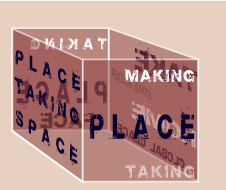Globalization Column: Two is Better Than One
As the world moves together, more and more people call two places ?home.? These ties not only benefit us; they also benefit countries fostering transnationalism.
By Joana Breidenbach
>> Family
>> Home
>> Multiple Identities
>> Self-ethnicization
When the Turkish soccer teams Galatasaray and Fenerbahce face off in Istanbul, Turks at Kottbusser Tor cheer every goal as friends call in important plays on their cell phones. Flights from Berlin to Antalya, Ankara, or Istanbul are often more affordable than train tickets from Berlin to Frankfurt am Main. And thanks to satellite television, almost as many Turkish television channels can be received in Germany as in Turkey. While past immigrants maintained only token connections to their home countries and quickly adopted the language and customs of their hosts (think: Huguenots in Prussian or Poles in the U.S.), today’s immigrants can rely on modern means of communication and transportation to stay in touch with where they’re from. Turkish retailers in London order products from the old country; preachers in Brazil pray for Brazilians in Chicago; Mozambican migrants in South Africa send their children to their grandparents in Maputo. What they all have in common are footholds in two countries. For many, this just makes sense. Migrants are often at the mercy of rapidly changing developments in the economy and in politics and exist in states best described as neither here nor there. Others confidently reap the advantages of binationality, adopting the rules they find expedient and circumventing the ones they don’t (e.g., enjoying the social freedoms and high standard of living in their new countries but finding wives, recognition, and political influence in their old ones).
The advantages of transnational life don’t only apply to migrants. Countries also recognize the benefits of cultivating ties to citizens living abroad.
Joana Breidenbach, from “Globalization Column: Two is Better Than One,” in brand eins 4: 07. Sept. 2002)

